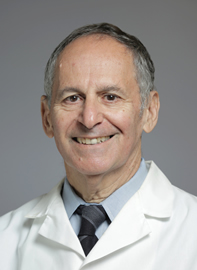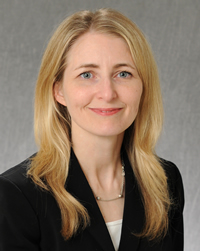Abstracts are a key part of the ACR/AHRP Annual Meeting, displaying the cutting edge of rheumatology science and practice that continues to move the field forward through the nearly 4,000 individual poster and oral presentations.

“It is the variety, the freshness, the timeliness, and the focused relevance of the research presented that make the abstracts a key part of the Annual Meeting,” said David S. Pisetsky, MD, PhD, Annual Meeting Planning Committee (AMPC) Basic Science Abstract Selection Co-Chair and Professor of Medicine and Immunology at Duke University Medical Center in Durham, N.C. “Our abstracts represent the largest single presentation of the latest research in rheumatology. Whatever your interests, the abstracts put you in touch with more research and more researchers than you will find assembled in any other venue.”
Peer reviewers are still examining and ranking the thousands of abstracts submitted by researchers from around the globe. Late-breaking abstract submissions open Sept. 12 and close on Oct. 4, barely a month before the Annual Meeting begins.
The late-breaking abstracts provide the very latest and most relevant data, said Victoria Shanmugam, MD, AMPC Clinical Science Abstract Selection Co-Chair and Associate Professor of Medicine and Director of Rheumatology at the George Washington University in Washington, D.C.

“Many of these abstracts go on to publication in very high-impact journals within a very few months,” Dr. Shanmugam said. “The focus is on high-impact research that is changing paradigms in rheumatology. As a clinician, I love to attend because I can go back to my clinic and tell my patients both what is new and how it might affect them and their treatment.”
No one yet knows which abstracts will be featured during plenary sessions, podium presentations, and poster presentations, Dr. Pisetsky said, but there are clear trends in research that will likely be represented in Washington.
“The science of immunology is exploding,” he said. “We are gaining much greater understanding of the systems that lead to inflammation and how they play out in different autoimmune and inflammatory diseases as inflammation is initiated and regulated and dysregulated. I anticipate a large amount of attention will be paid to the variety of systems involved and the ways they interact to keep inflammation in balance or allow it to become a pathologic process.”
Continuing research is uncovering ever more information about signaling pathways and increasingly detailed understanding of the cytokines and other mediators involved. And there will almost certainly be new data on how therapeutic agents designed to modulate these pathways actually interact with complex human systems.
“The immune system is hugely complicated and involves many interacting pathways for regulation,” Dr. Pisetsky said. “When you modulate one of these pathways, usually by blocking it, there are many associated downstream effects. We don’t fully know the consequences of a therapy beyond its efficacy because there are so many steps in the various processes that can be involved. I anticipate a lot of new data on the cytokine network and its regulation.”
Not sure which abstracts to look for? Start with the recognition that no one can see them all, Dr. Pisetsky advised.
Poster sessions can be particularly useful because of the sheer variety of research presented and the easy access to authors. Poster presenters are available Sunday through Tuesday (Nov. 13-15) for questions and discussion. There are also guided poster tours led by experts who provide context and interpretation for a curated selection of abstracts.
“With so many abstracts, it can be useful to have guidance to those that are potentially of greater interest and relevance,” he said. “Rigorous peer review ensures that all of the abstracts are excellent, but having someone with special expertise in the field will likely lead you to a few that are more interesting than you might have expected.”
